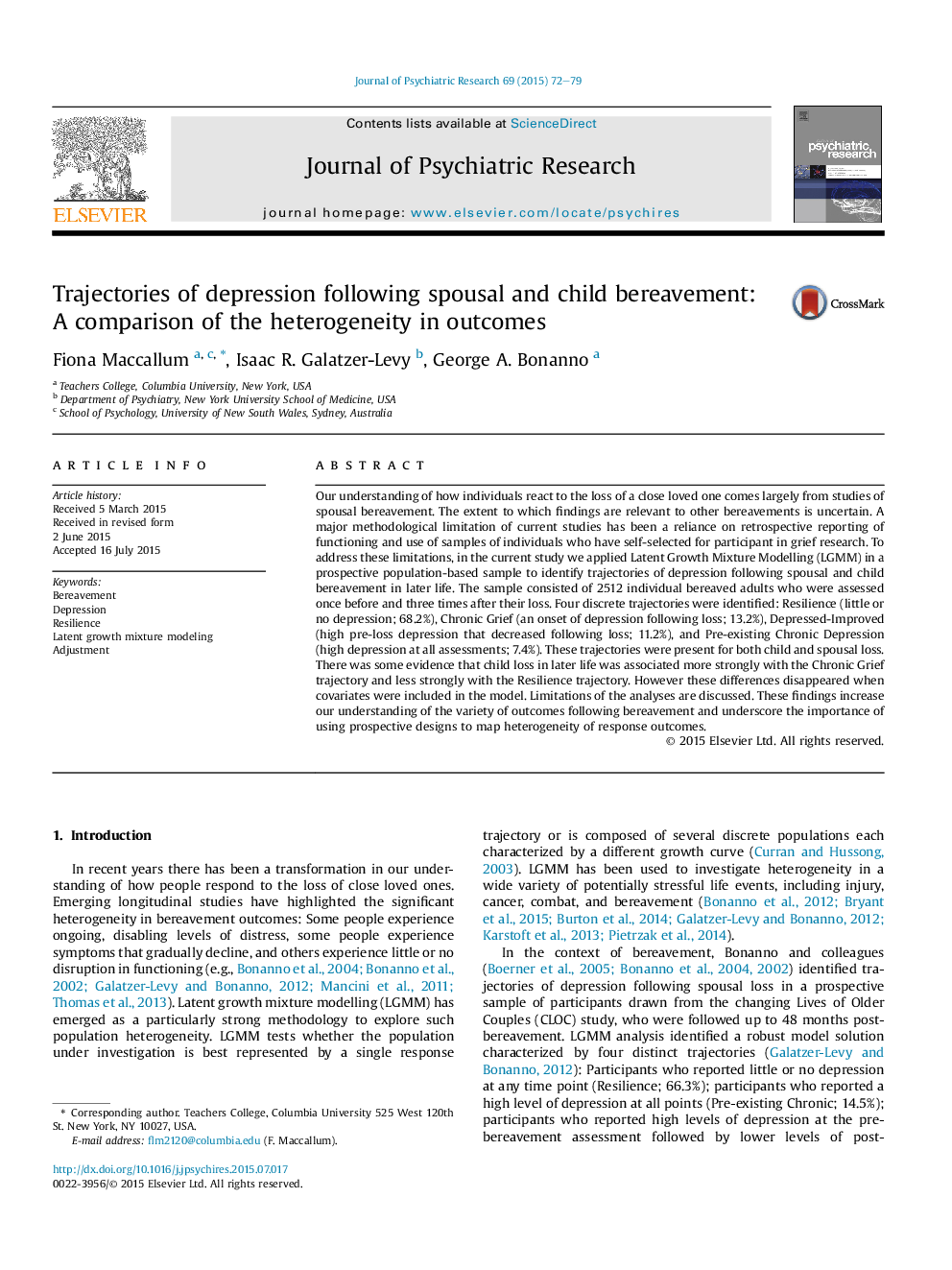| کد مقاله | کد نشریه | سال انتشار | مقاله انگلیسی | نسخه تمام متن |
|---|---|---|---|---|
| 6800289 | 542822 | 2015 | 8 صفحه PDF | دانلود رایگان |
عنوان انگلیسی مقاله ISI
Trajectories of depression following spousal and child bereavement: A comparison of the heterogeneity in outcomes
ترجمه فارسی عنوان
مسیرهای افسردگی پس از زایمان زناشویی و فرزند: مقایسه ناهمگونی در نتایج
دانلود مقاله + سفارش ترجمه
دانلود مقاله ISI انگلیسی
رایگان برای ایرانیان
کلمات کلیدی
مرگ و میر افسردگی، انعطاف پذیری، مدل سازی مخلوط رشد بادام، تنظیم
موضوعات مرتبط
علوم زیستی و بیوفناوری
علم عصب شناسی
روانپزشکی بیولوژیکی
چکیده انگلیسی
Our understanding of how individuals react to the loss of a close loved one comes largely from studies of spousal bereavement. The extent to which findings are relevant to other bereavements is uncertain. A major methodological limitation of current studies has been a reliance on retrospective reporting of functioning and use of samples of individuals who have self-selected for participant in grief research. To address these limitations, in the current study we applied Latent Growth Mixture Modelling (LGMM) in a prospective population-based sample to identify trajectories of depression following spousal and child bereavement in later life. The sample consisted of 2512 individual bereaved adults who were assessed once before and three times after their loss. Four discrete trajectories were identified: Resilience (little or no depression; 68.2%), Chronic Grief (an onset of depression following loss; 13.2%), Depressed-Improved (high pre-loss depression that decreased following loss; 11.2%), and Pre-existing Chronic Depression (high depression at all assessments; 7.4%). These trajectories were present for both child and spousal loss. There was some evidence that child loss in later life was associated more strongly with the Chronic Grief trajectory and less strongly with the Resilience trajectory. However these differences disappeared when covariates were included in the model. Limitations of the analyses are discussed. These findings increase our understanding of the variety of outcomes following bereavement and underscore the importance of using prospective designs to map heterogeneity of response outcomes.
ناشر
Database: Elsevier - ScienceDirect (ساینس دایرکت)
Journal: Journal of Psychiatric Research - Volume 69, October 2015, Pages 72-79
Journal: Journal of Psychiatric Research - Volume 69, October 2015, Pages 72-79
نویسندگان
Fiona Maccallum, Isaac R. Galatzer-Levy, George A. Bonanno,
